“Diversity can be an advantage” – a tsunami of experiences following the first Dancing on the Square camp
The first session of this year’s Dancing on the Square Camp surpassed the expectations of all participants. The magical surroundings of Hollókő, the occasional showers bringing respite from the summer heat and the rainbows accompanying them were just the backdrop. Once again, it was the children who played the lead roles: many of them were return visitors at the camp conceived and launched by the Budapest Festival Orchestra and co-organised with the Foundation for Democratic Youth. This summer, we headed to Hollókő for two sessions of 6 days each with some of the children participating in the Dancing on the Square concert. This is their reward, and a reward for their teachers, after many months of rehearsals, and the guest artists supporting the programmes also see these camps a source of pure joy.
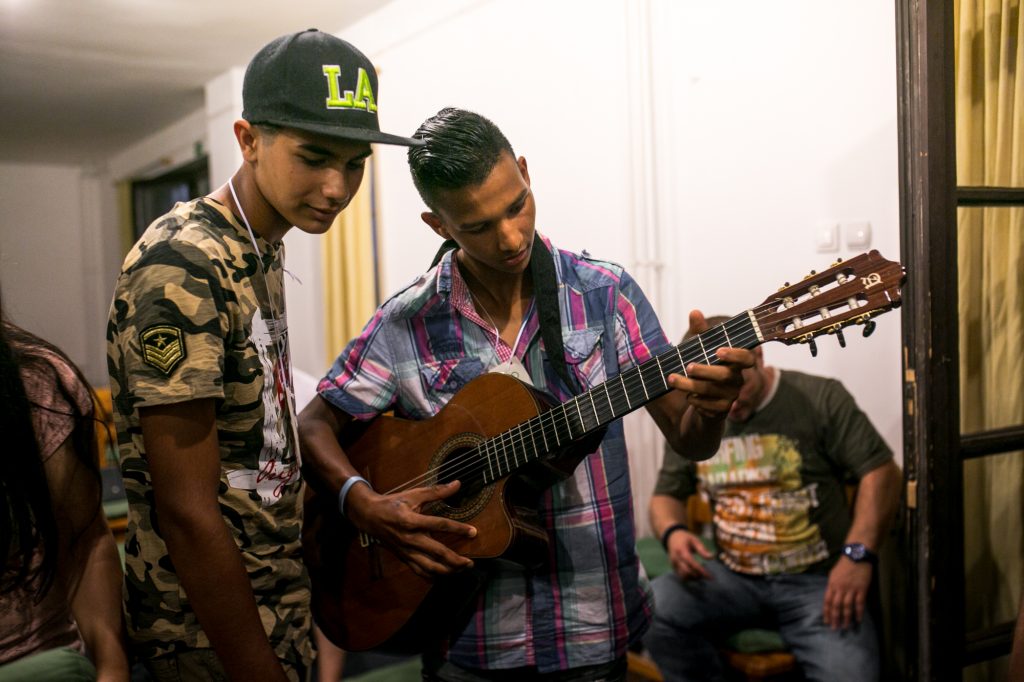
The theme of the first camp, in line with the motto of the Dancing on the Square project, was tolerance and acceptance. After arriving, the children learned about the 5 fundamental values of tolerance, referred to as the “five-finger rules”:
Be positive!
Responsibility
Respect
Commitment
Safety
The children quickly made friends, and came up together with the camp’s ground rules – which they followed throughout. It was delightful to see all of them participating in the various activities regardless of age, gender, background or abilities. If something proved difficult, they helped and encouraged one another, which allowed all of them to experience success, and no one to give up.
Some of the ambassadors of the Dancing on the Square project also visited the camp, including Dóri Behumi and the Budapest Bár; the Libri team brought the joy of reading closer to the children, clad in Harry Potter’s cloak; Festival Orchestra tuba player József Bazsinka dropped by and, as usual, had the children wrapped around his little finger; Bélaműhely also held a session for the children; and there were Gypsy and folk dance activities. To the astonishment of the residents of Hollókő, we conducted a mock investigation in the village, which of course had to involve the locals – the only ones who had the answers to some of the questions. On the last night of the camp, we gathered by the campfire to sing and waited to catch a glimpse of the lunar eclipse or “blood moon”.
As FDY has said, “These 50 kids, of completely different ages and backgrounds, spent six days together in harmony and peaceful cooperation, which suggests that, given the right conditions, it really is possible to make miracles happen. Our greatest desire is to see at least some of the methods used here find their way into day-to-day school life, giving as many children as possible a chance to achieve their potential and dreams, regardless of their backgrounds.”
And as Viktória Csaba, an accompanying teacher from Indahouse Hungary, one of the groups participating in the camp, said, “I am still under the spell of the camp; it’s difficult to believe that it is now time to return to the monotony of our usual weekdays. I was thinking that, perhaps through the introduction and enforcement of similar rules, we could see the same kind of harmonious co-existence in society, where adults and children, Roma and non-Roma, disadvantaged and privileged people can all work and create together. For diversity can be an advantage, too.”
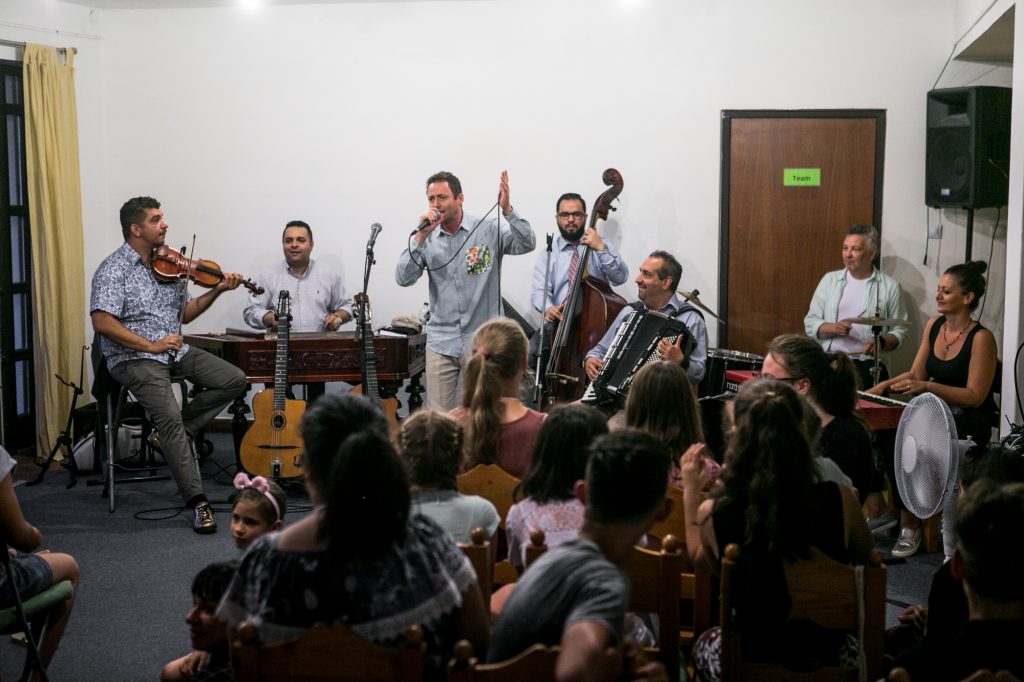
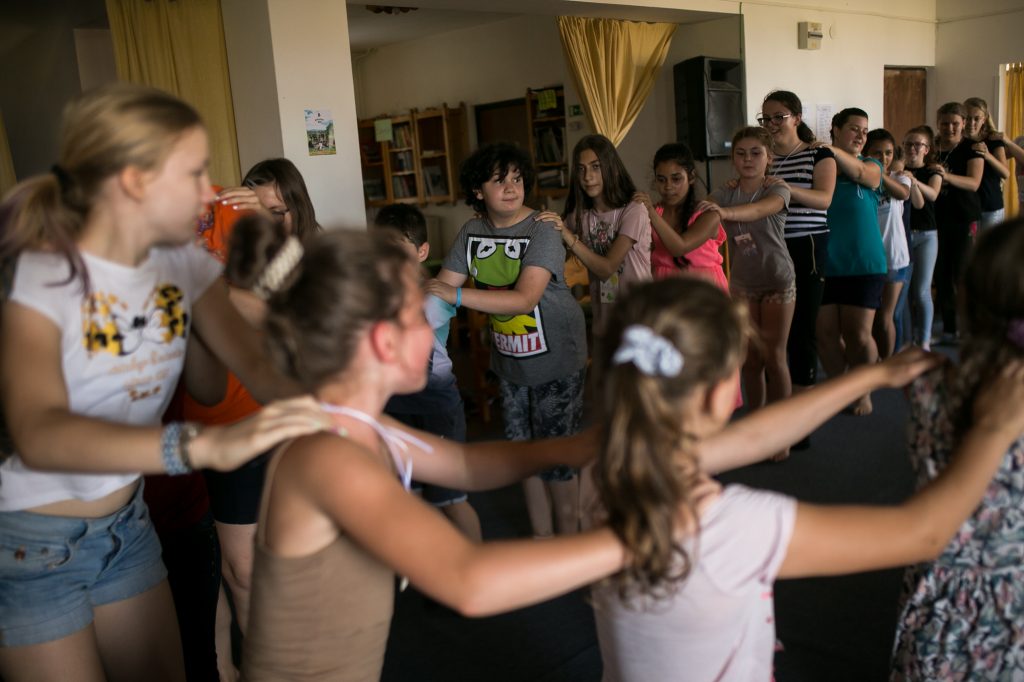
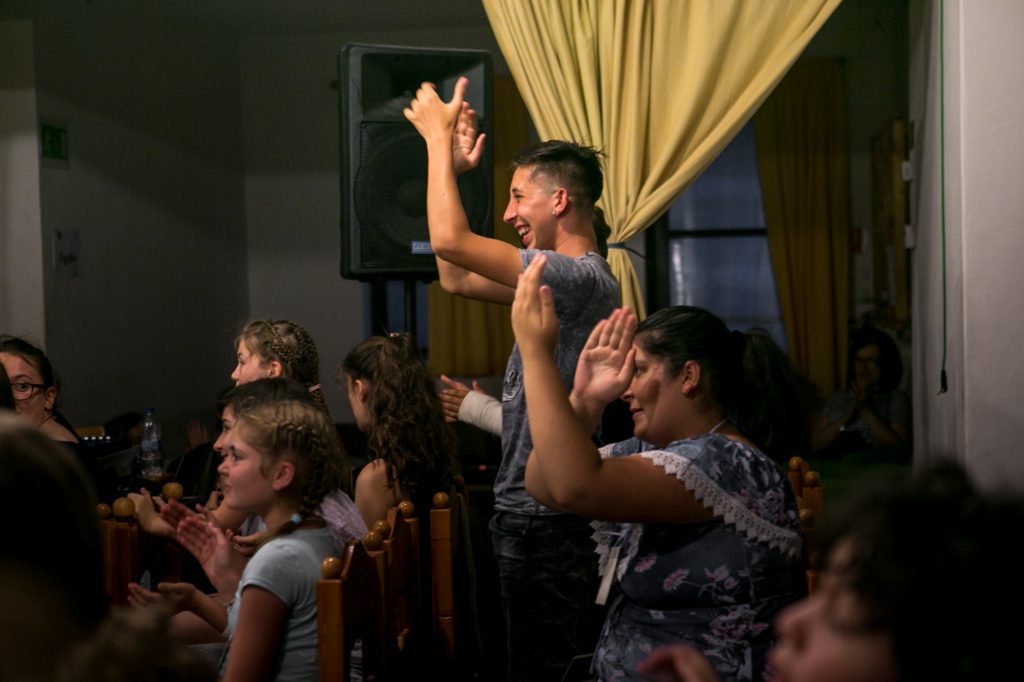
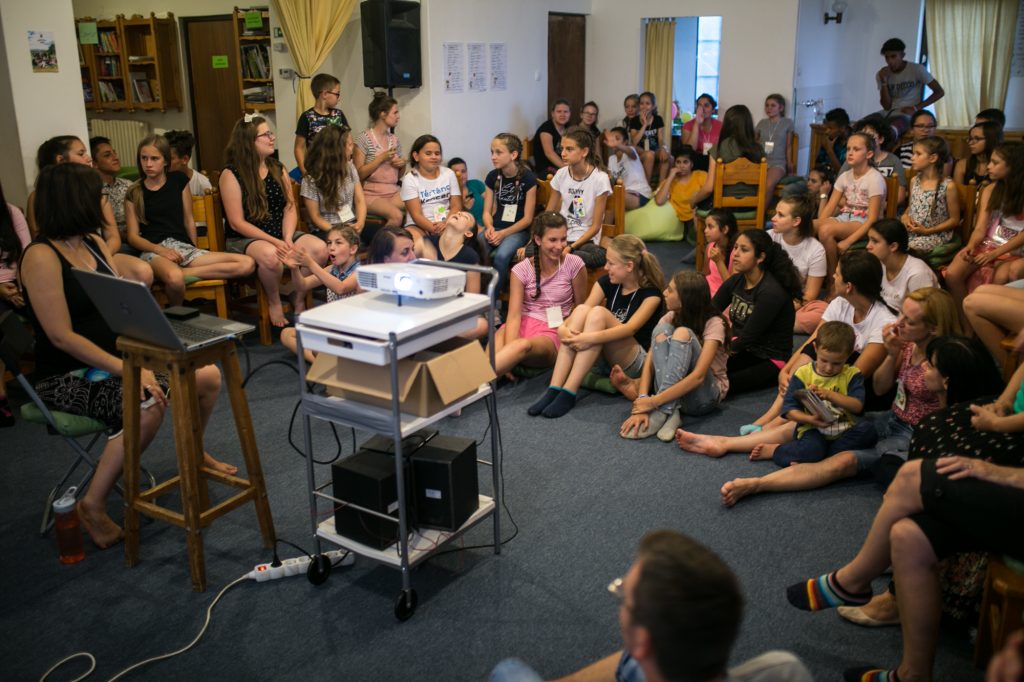
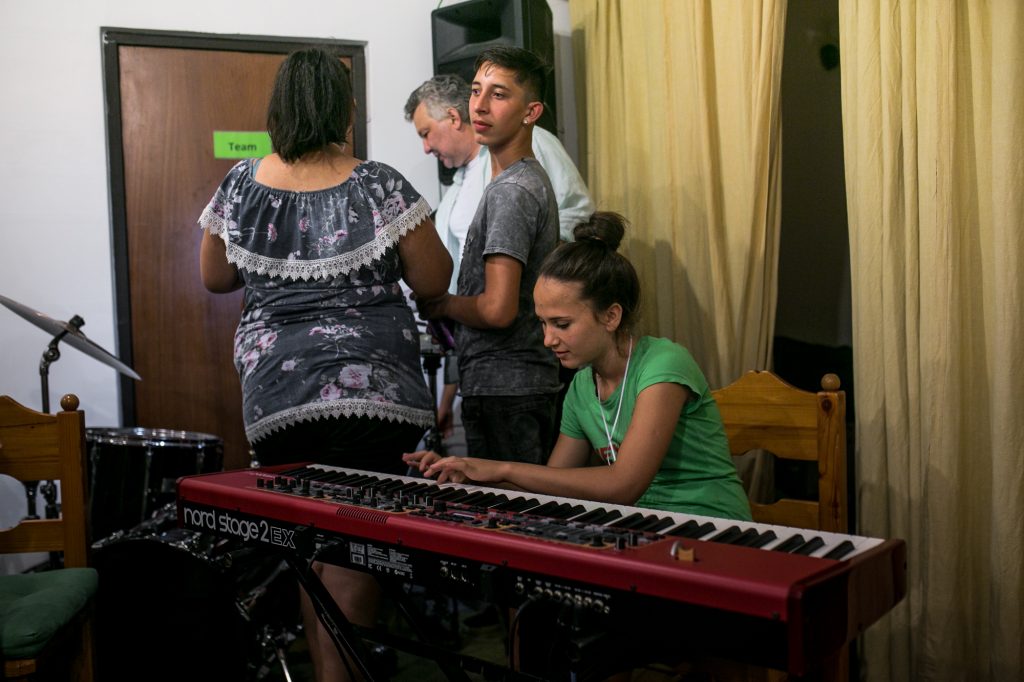
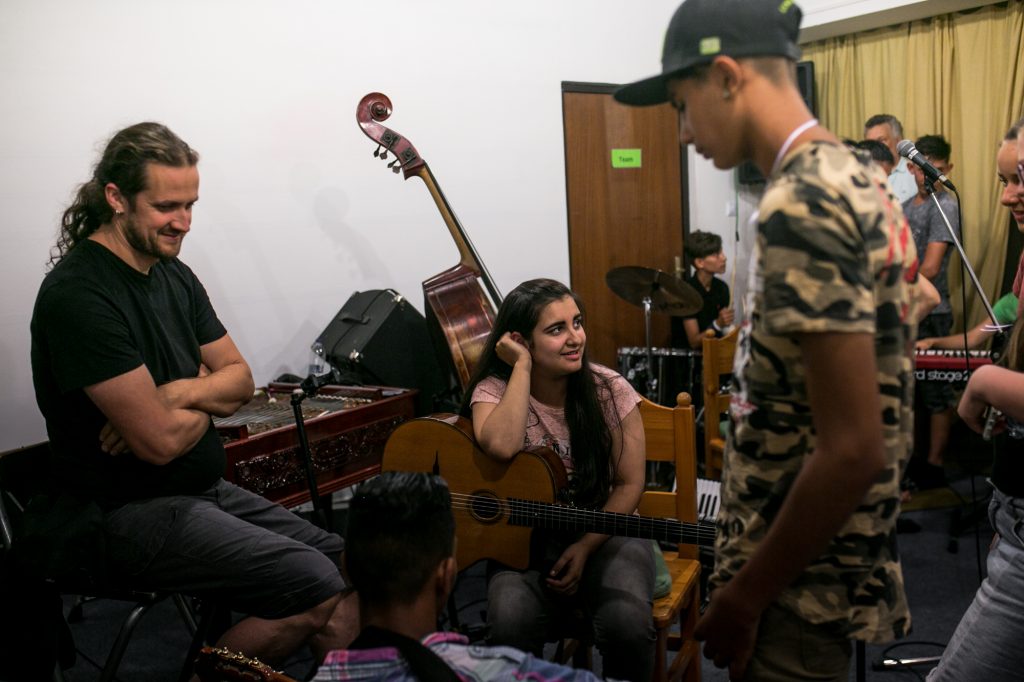
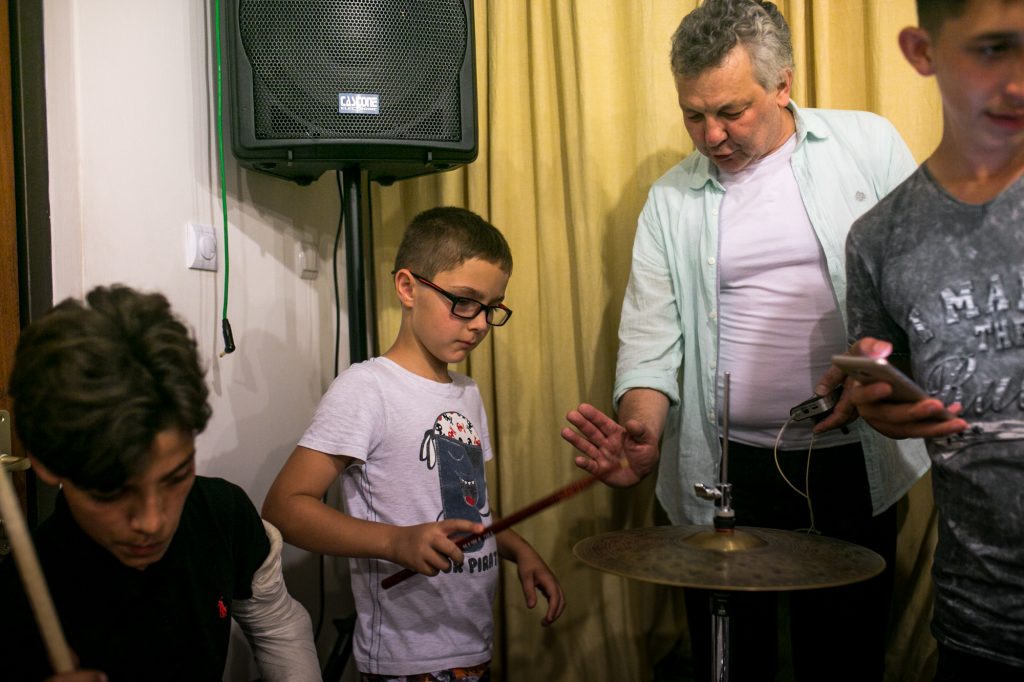
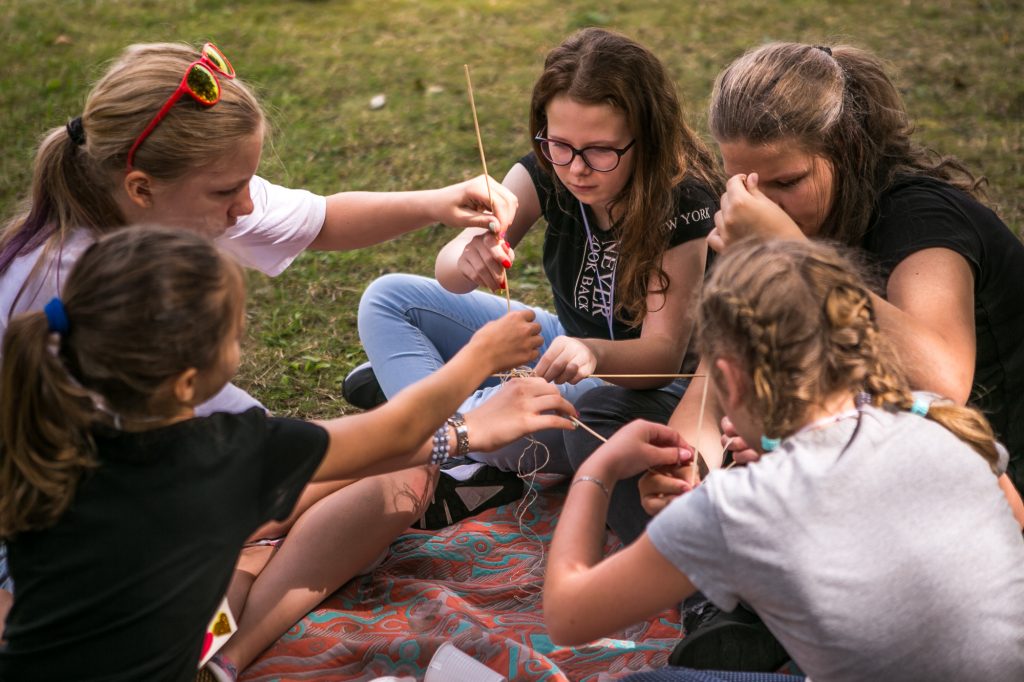
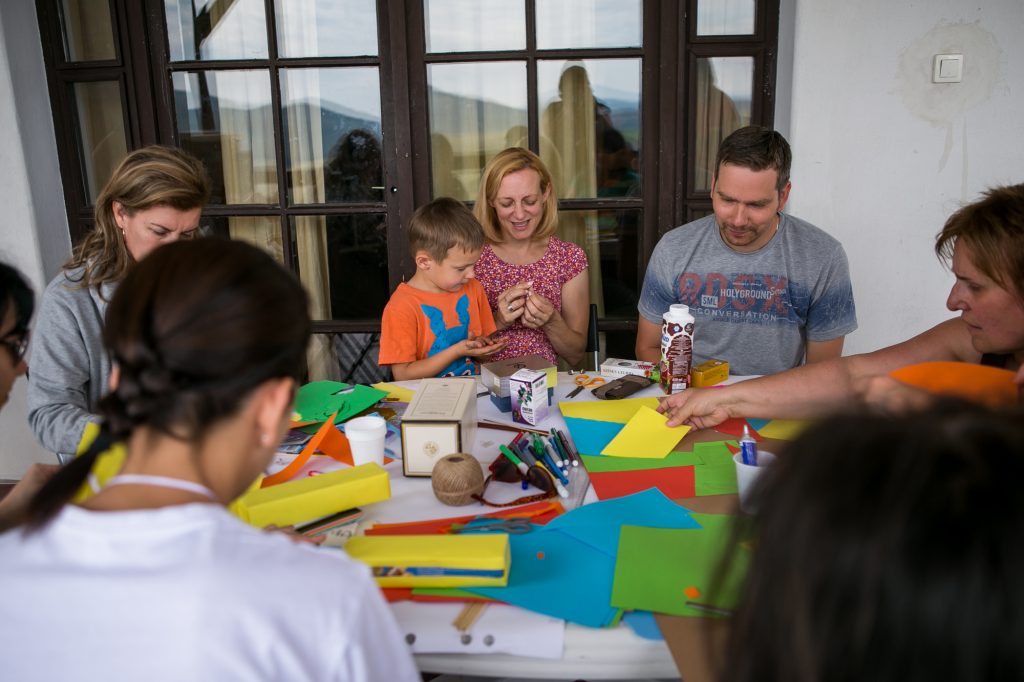
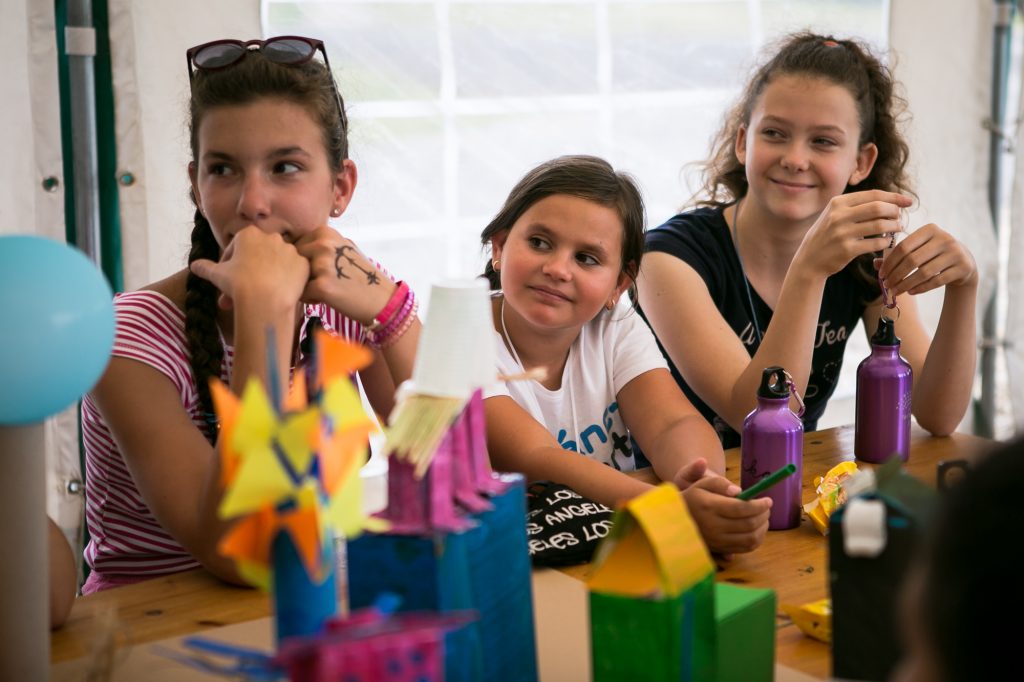
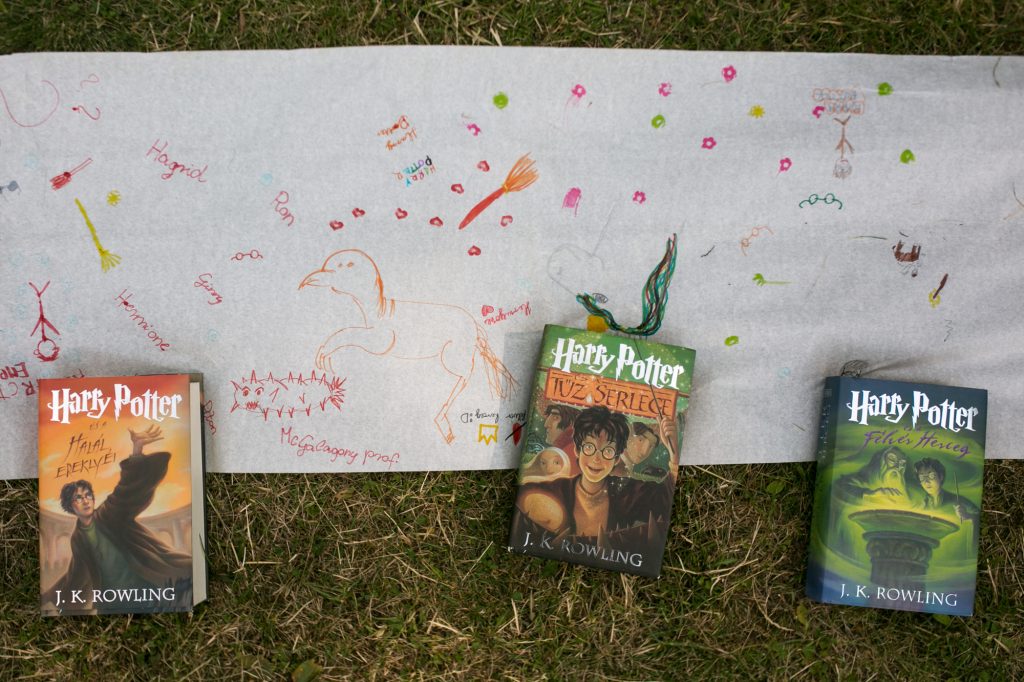
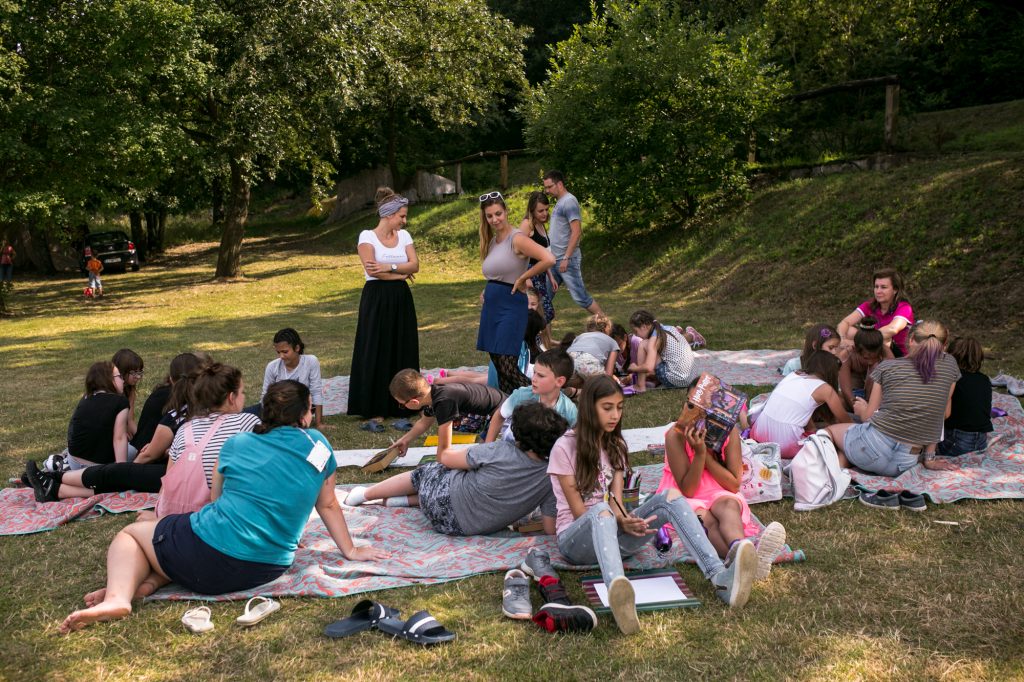
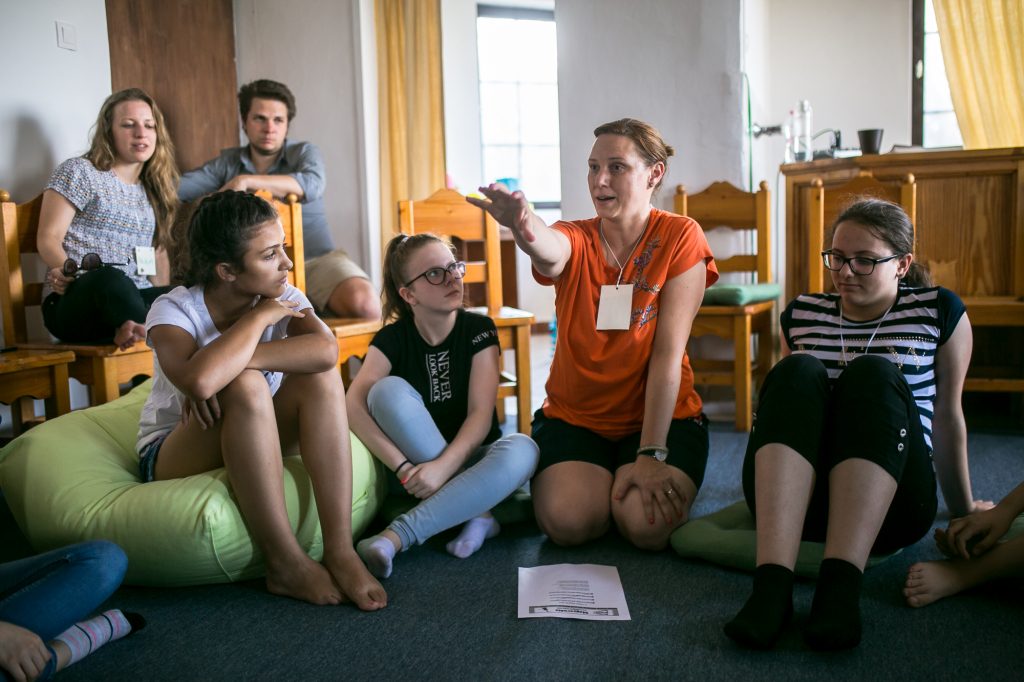
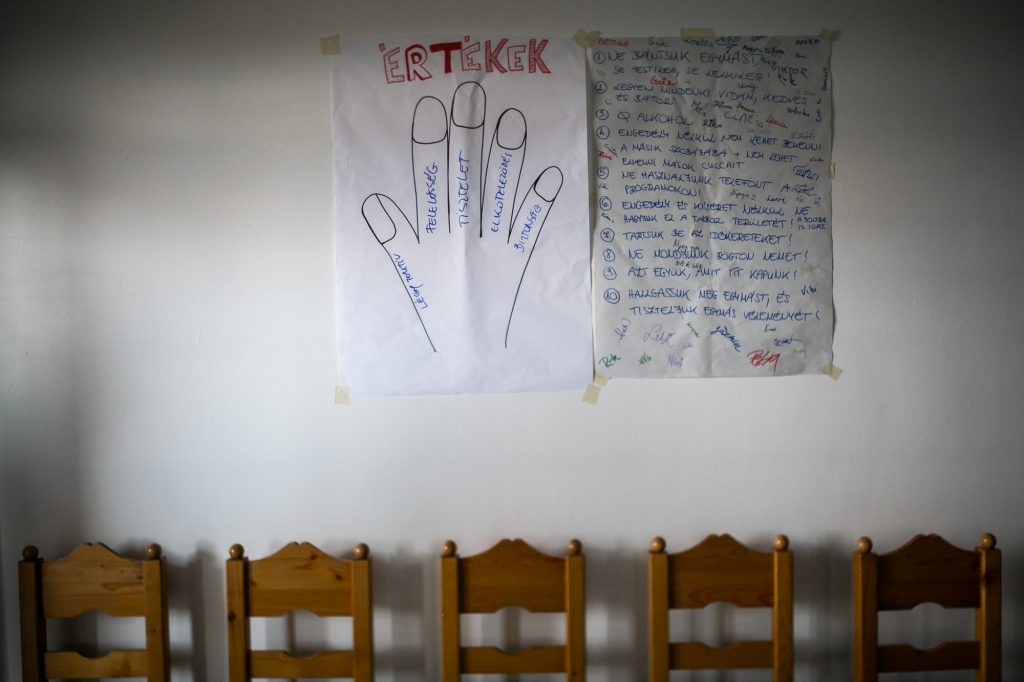
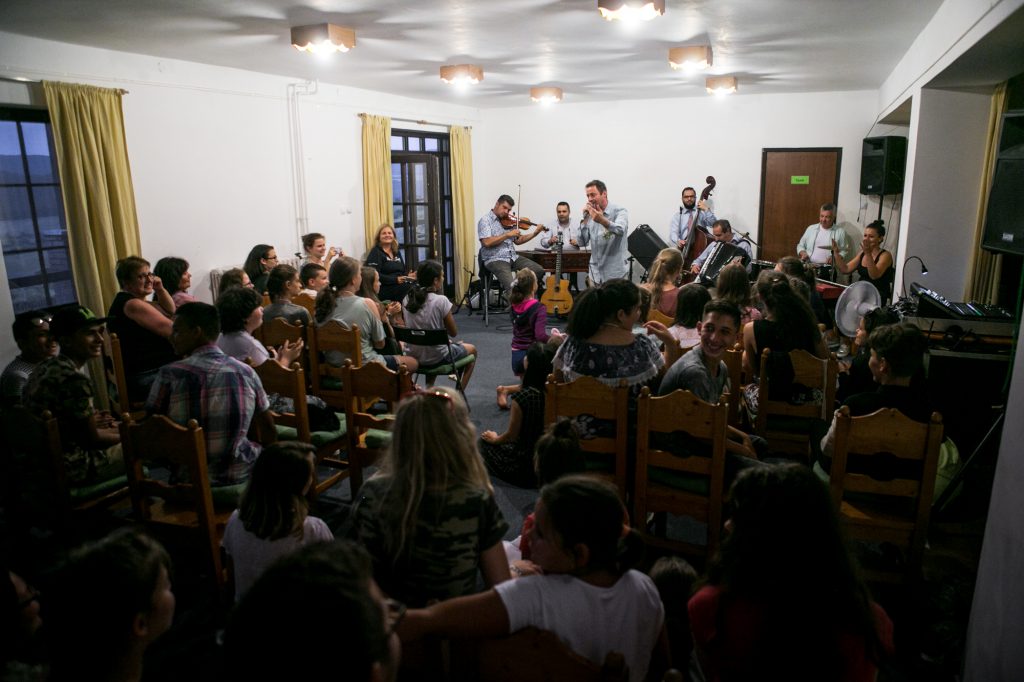
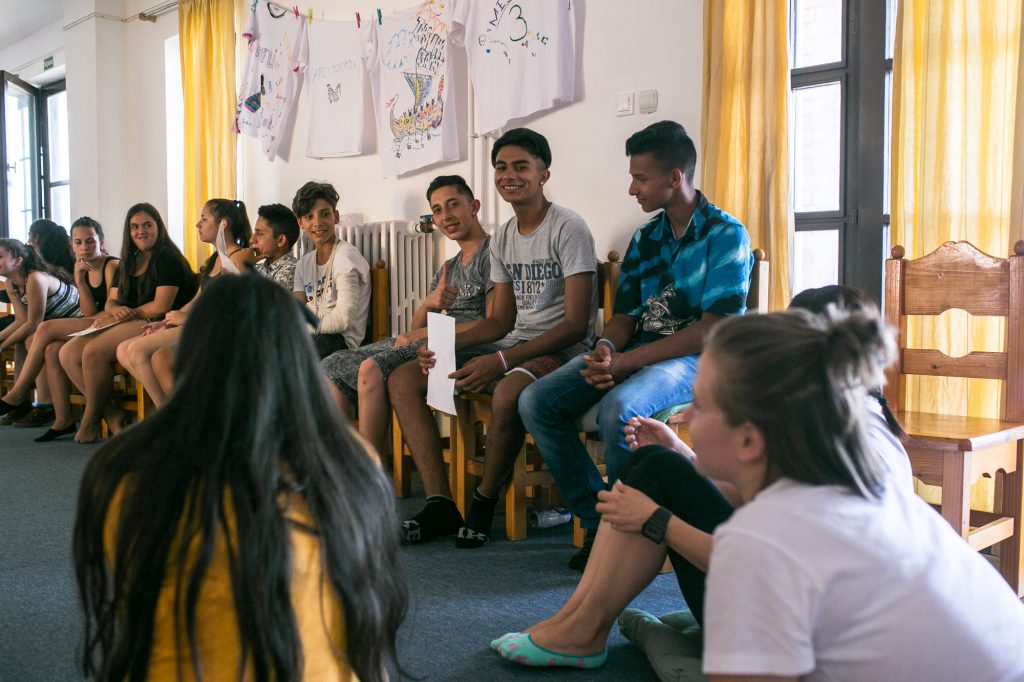
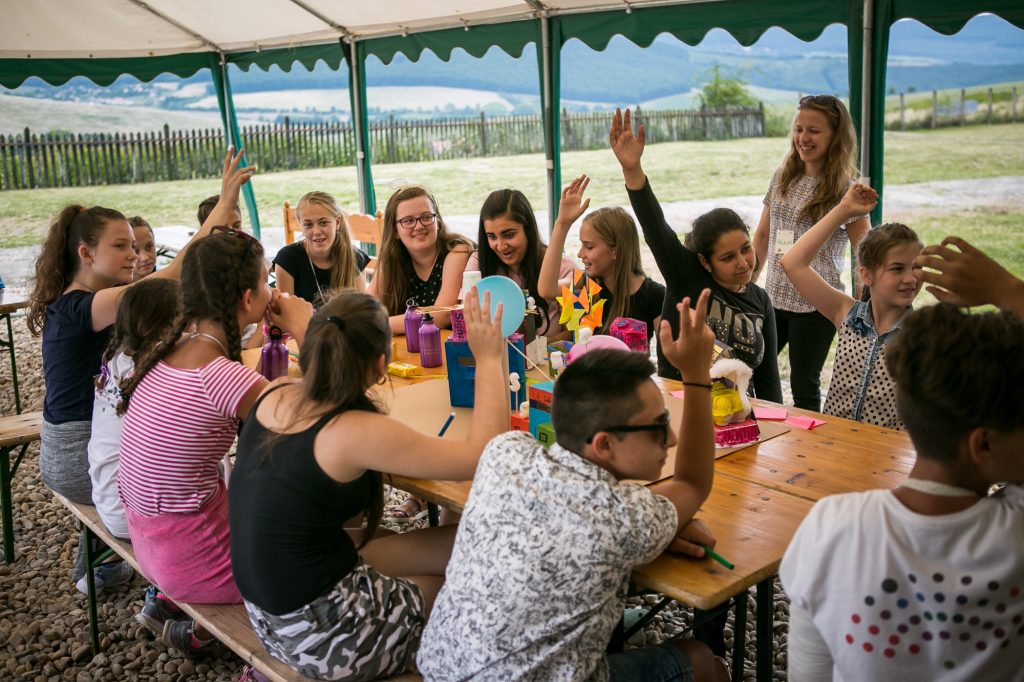
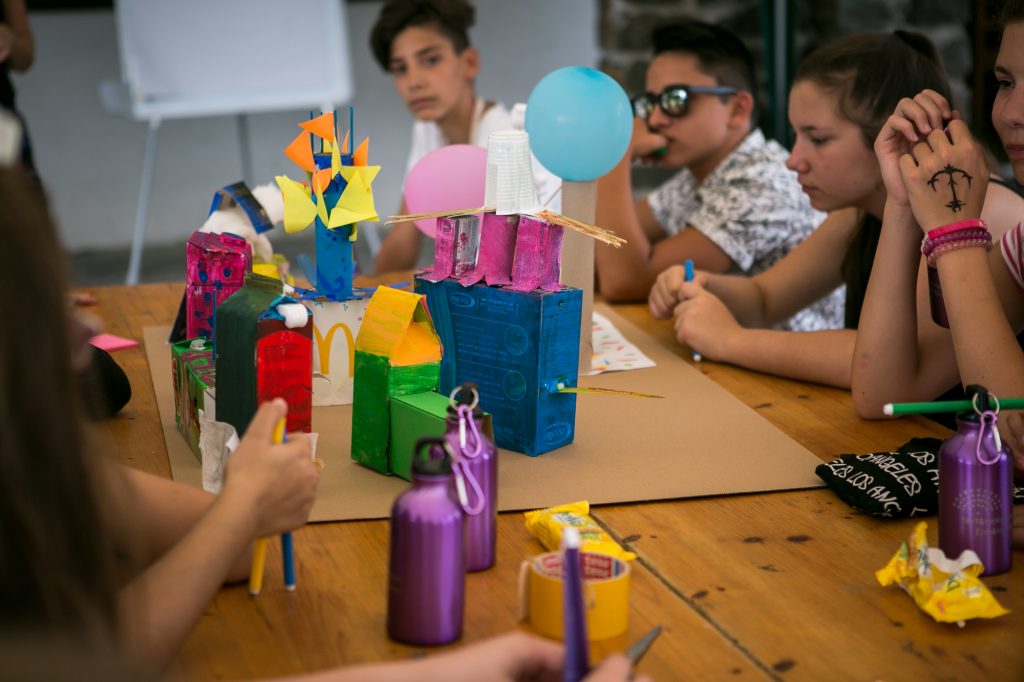
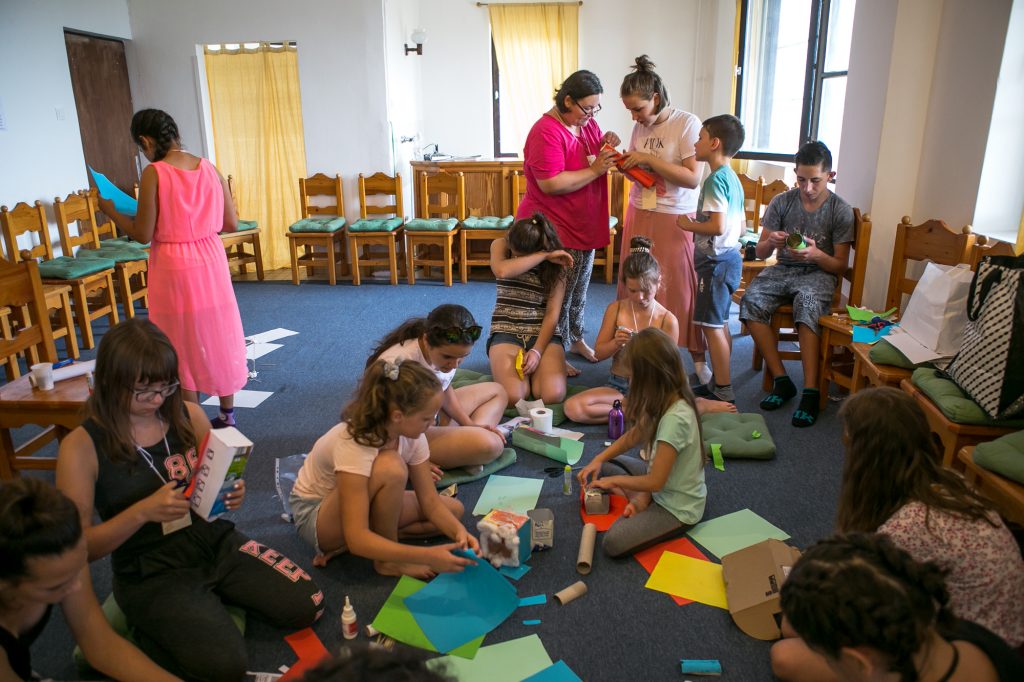
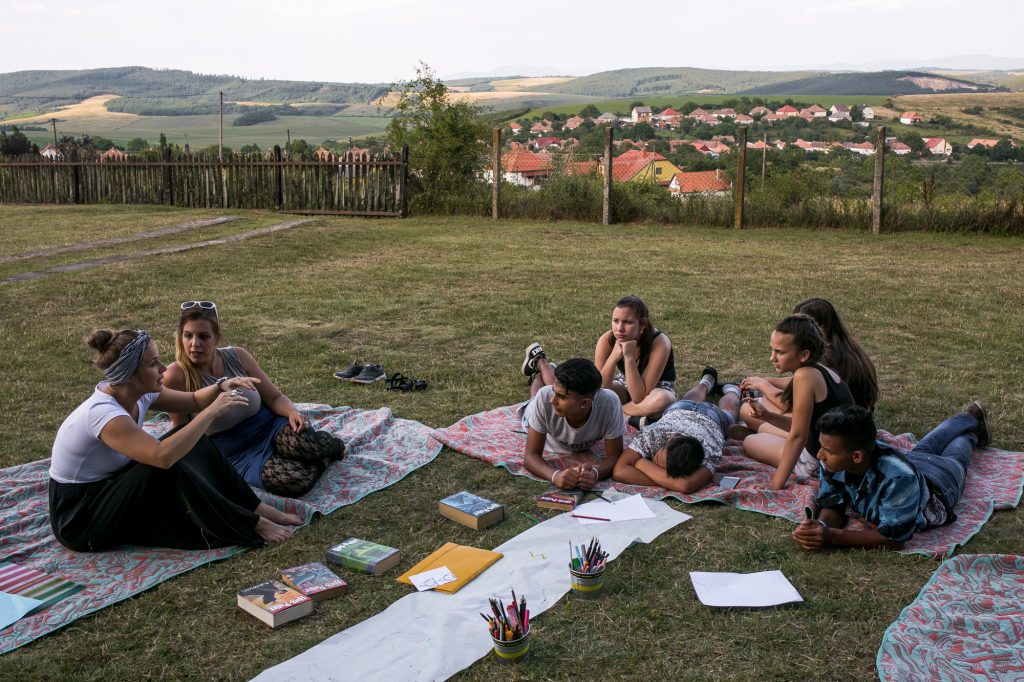
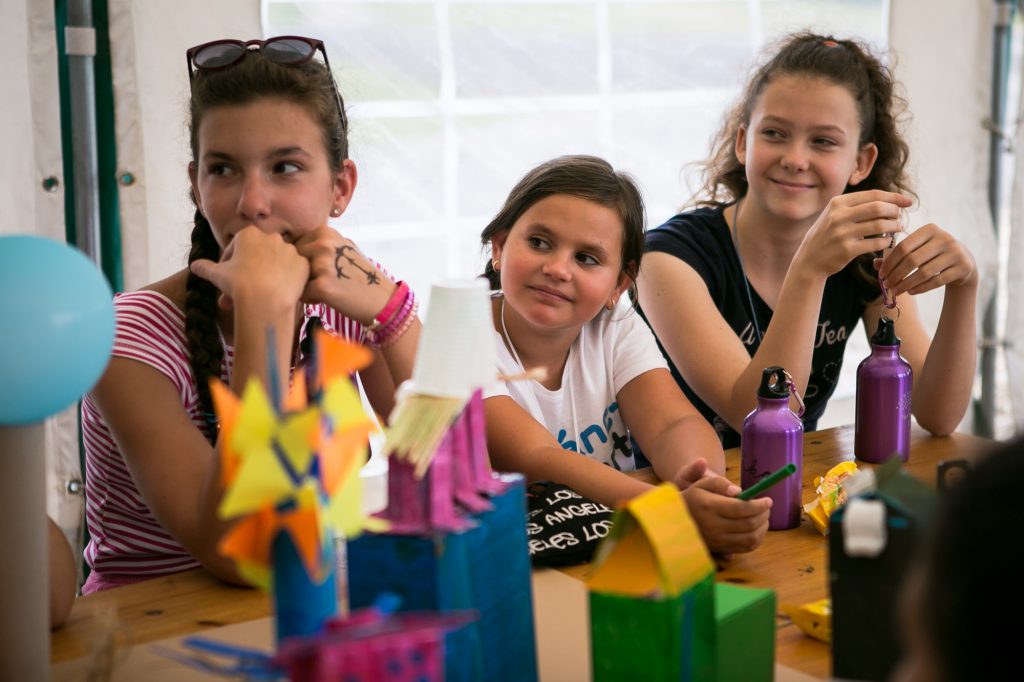
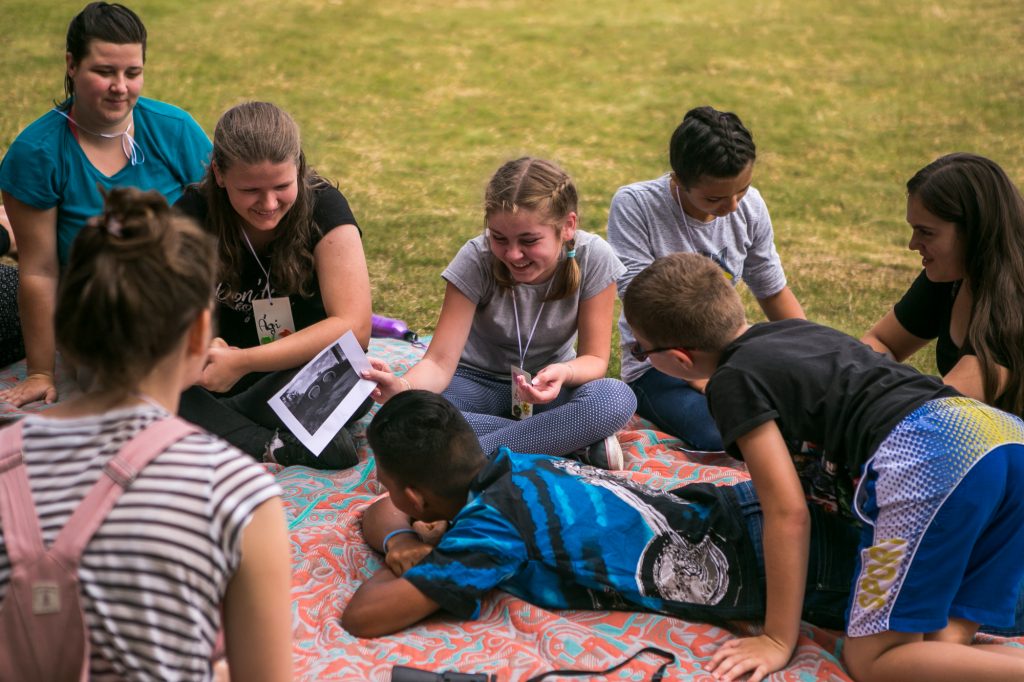
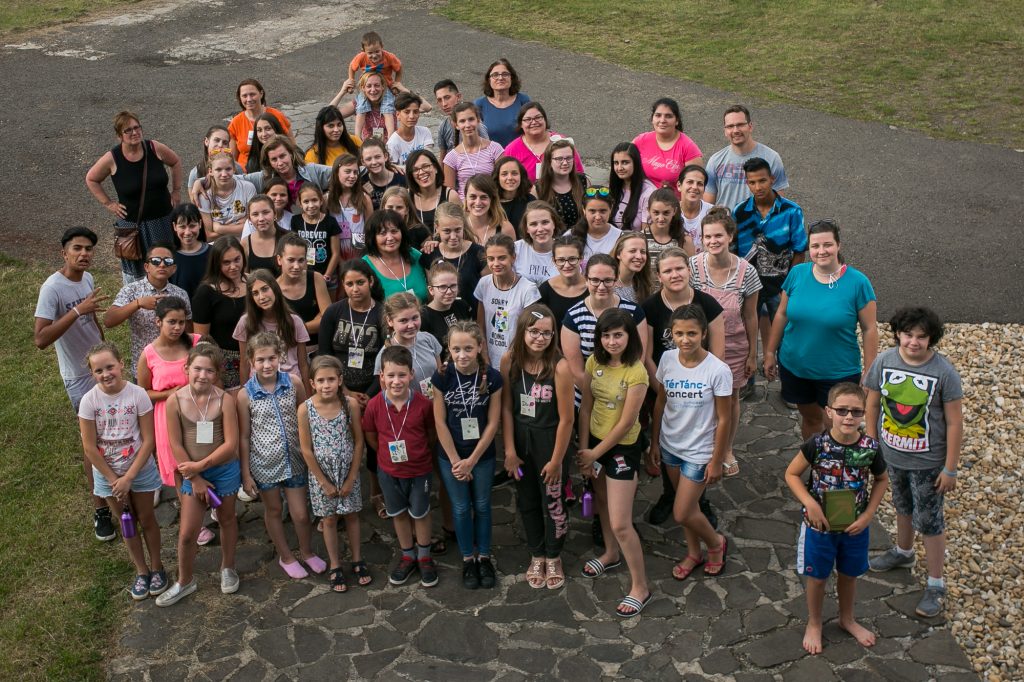
Photographs by Fanni M. Benkő.